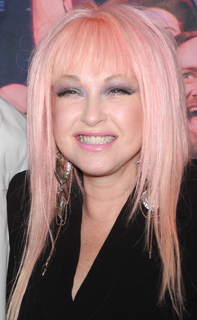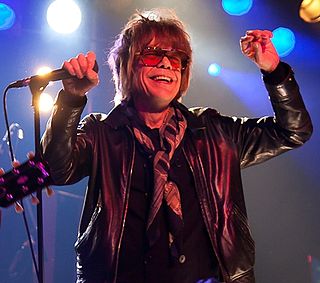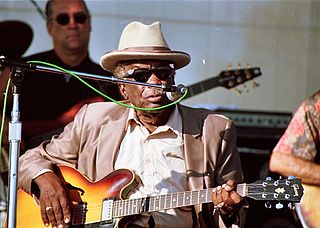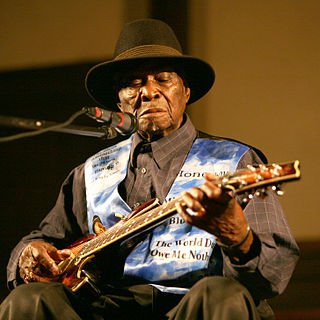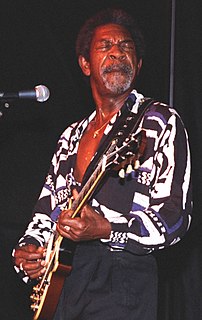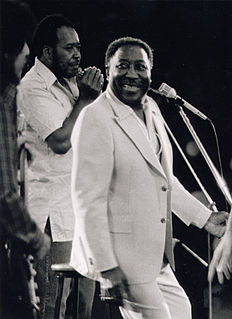A Quote by Cyndi Lauper
I learned jazz; that comes from blues. I learned rock; that comes from blues. I learned pop; that comes from blues. Even dance, that comes from blues, with the answer-and-response.
Related Quotes
I'm a bluesman moving through a blues-soaked America, a blues-soaked world, a planet where catastrophe and celebration... "Joy and Pain" - sit side by side. The blues started off in some field, in some plantation, in some mind, in some imagination, in some heart. The blues blew over to the next plantation, and then the next state. The blues went south to north, got electrified and even sanctified. The blues got mixed up with jazz and gospel and rock and roll.
